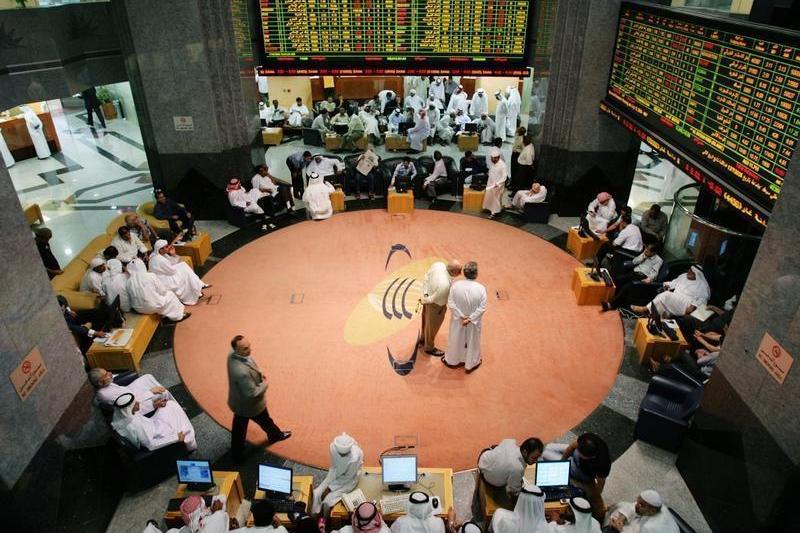UAE stocks markets ended lower on Friday, following a decline in global oil prices as concerns about rising supply from major producers weighed on investor sentiment. The weakness in oil, a vital revenue source for the region, impacted both Abu Dhabi and Dubai exchanges, pushing their key indices into negative territory for the week.
Oil Price Decline Affects Market Confidence
Oil prices continued to slide as reports suggested that OPEC+ was considering a modest increase in output for December. The potential boost in production added pressure on global prices, with Brent crude dropping by 0.4% to $64.74 a barrel. This fall in oil prices affected market sentiment across the Middle East, where economies remain closely tied to energy exports.
Investors reacted cautiously ahead of the OPEC+ meeting scheduled for Sunday. The group, which includes the Organization of Petroleum Exporting Countries and its allies, has already increased production targets by over 2.7 million barrels per day this year, accounting for around 2.5% of global supply. The prospect of further increases sparked concerns that the market could become oversupplied, putting downward pressure on oil prices and, consequently, on regional stock markets.

Abu Dhabi Records Sharpest Drop in a Month
Abu Dhabi’s benchmark index slumped by 1.1%, marking its steepest daily decline in over a month. The losses were led by significant drops in heavyweight stocks, particularly Aldar Properties and Abu Dhabi Commercial Bank.
Aldar Properties, the emirate’s largest real estate developer, saw its shares fall 3.8% as investors grew wary about slowing demand in the property sector and potential cost challenges linked to higher interest rates. Abu Dhabi Commercial Bank, the country’s third-largest lender, slipped 3.2%, extending its recent losing streak as investors reassessed the banking sector’s short-term prospects.

Another major decliner was Americana Restaurants International, the operator of several U.S. fast-food brands across the Middle East. The company’s stock plunged 5% after it reported third-quarter profits that fell short of analysts’ expectations of $54.6 million.
By the close of trading, Abu Dhabi’s main index stood at 10,100 points, down 1.1% for the day. On a weekly basis, the index recorded a 1% loss, reflecting a cautious tone among investors after weeks of steady gains.
Dubai Market Ends Winning Streak
Dubai’s main share index also ended lower, slipping 0.8% and snapping a three-session winning streak. The losses were driven by a 2.7% drop in Emaar Properties, the city’s flagship developer known for projects such as the Burj Khalifa and Dubai Mall. After strong performance in recent months, Emaar’s decline was attributed to profit-taking and investor caution ahead of key economic announcements.
Dubai Electricity and Water Authority (DEWA), one of the most closely watched state-run utilities in the region, fell 2.5%. Analysts said the decline in DEWA’s stock reflected a temporary shift in investor focus away from defensive sectors.
The Dubai Financial Market closed at 6,059 points. Despite the day’s losses, the overall outlook for Dubai’s market remains resilient, with only a marginal 0.1% dip for the week following four consecutive weeks of growth.
DP World Expands Global Presence with $5 Billion India Investment
In a major international development, Dubai-owned ports and logistics company DP World announced plans to invest an additional $5 billion in India. The investment aims to strengthen the company’s integrated supply chain network and enhance its logistics operations across key Indian trade routes.
The move highlights DP World’s long-term strategy of expanding its global reach while reinforcing trade ties with one of the world’s fastest-growing economies. The investment will cover port development, container handling facilities, and digital trade infrastructure, underscoring Dubai’s commitment to maintaining its position as a global logistics leader.
This expansion is seen as a positive step for the broader UAE economy, reflecting the country’s focus on economic diversification and international partnerships. Although DP World’s announcement did not immediately influence local stock performance, it strengthens investor confidence in Dubai’s long-term trade and investment prospects.

OPEC+ Meeting Adds to Market Caution
Investors are now turning their attention to the upcoming OPEC+ meeting, where the group is expected to finalize its production strategy for December. Speculation that OPEC+ may opt for a small output increase has raised questions about the impact on global oil balance and market stability.
For the UAE and other Gulf economies, which rely heavily on oil revenues, the decision will play a crucial role in shaping near-term market performance. Analysts believe that a moderate output adjustment could help balance the market, while a larger production hike might further weaken prices and pressure regional equities.
Beyond oil, global economic trends continue to influence investor behavior. Factors such as U.S. interest rate expectations, inflation data, and China’s industrial output will all shape sentiment in the coming weeks. The combination of these global and regional dynamics keeps investors in the UAE cautious yet optimistic about potential rebounds once market uncertainty eases.
Weekly Recap: Mild Losses, Resilient Markets
Despite the decline on Friday, both Abu Dhabi and Dubai markets remain broadly stable compared to regional peers. Abu Dhabi’s 1% weekly loss and Dubai’s 0.1% weekly dip suggest that investors are engaging in mild profit-taking after recent gains rather than exiting the markets entirely.
Analysts say that the UAE’s robust economic fundamentals and ongoing diversification initiatives continue to provide a solid base for long-term growth. The government’s commitment to infrastructure development, digital transformation, and clean energy investments helps sustain investor confidence even amid short-term fluctuations.
Real estate, logistics, and technology sectors are expected to remain key areas of focus for investors seeking growth opportunities. The UAE’s push toward sustainability and renewable energy, including major solar projects and hydrogen initiatives, could also attract new investment flows in the coming months.

Market Outlook: Balancing Risks and Opportunities
Looking ahead, the direction of UAE markets will depend largely on oil price trends and the outcomes of upcoming OPEC+ discussions. If oil prices stabilize, both Abu Dhabi and Dubai could recover from their recent dips and resume their upward momentum.
In the medium term, the UAE’s strong fiscal position, expanding global partnerships, and forward-looking policies are expected to support continued economic growth. The government’s emphasis on innovation, logistics, and technology ensures that the country remains a key investment destination in the region.
While short-term market volatility is likely to persist due to global supply concerns, the UAE’s steady economic diversification and investor-friendly environment provide reassurance for long-term stability. Traders and investors are likely to remain watchful, balancing caution with optimism as they navigate shifting global and regional conditions.
Do follow UAE Stories on Instagram
Read Next – DCT Abu Dhabi Hosts CIS Marketplace to Boost Tourism Growth












